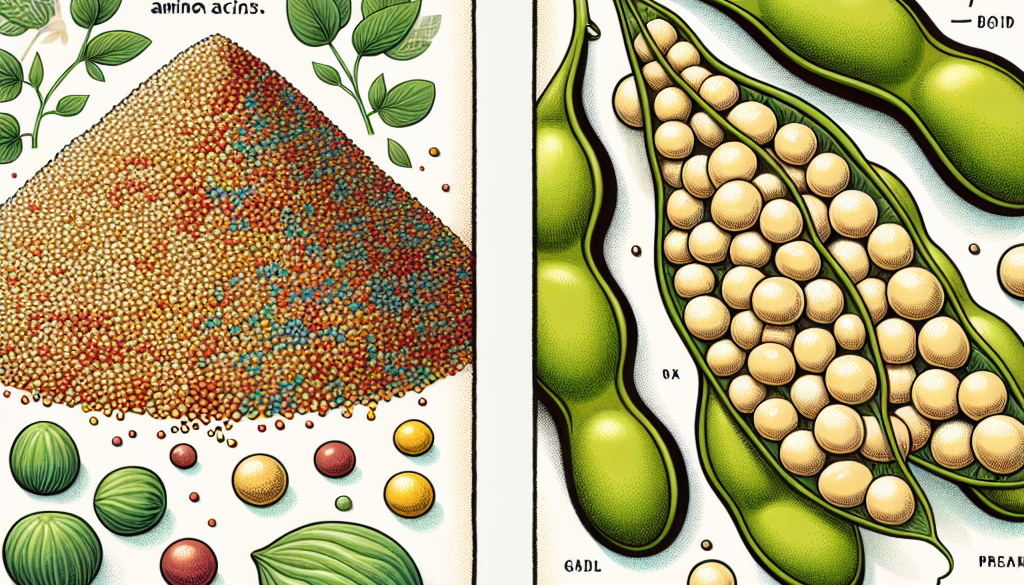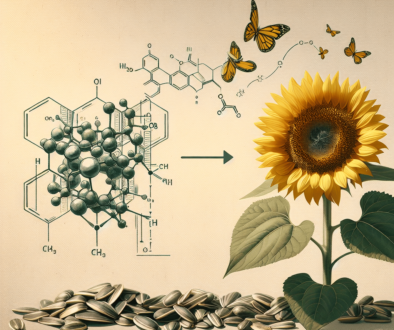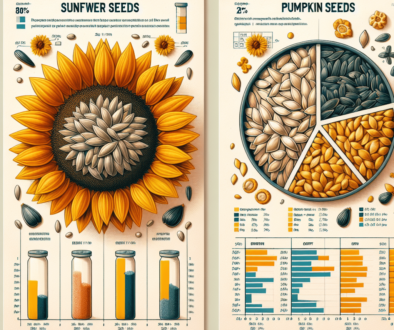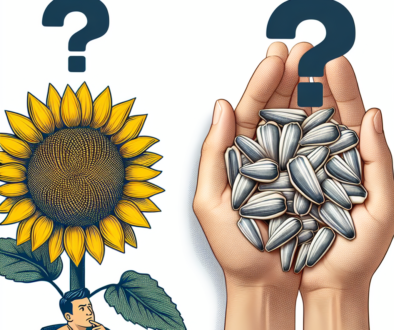What Are Two Plant Foods That Are Complete Proteins?
-
Table of Contents
- Complete Proteins in Plant Foods: Quinoa and Soy
- Understanding Complete Proteins
- Quinoa: The Ancient Superfood
- Case Study: Quinoa’s Impact on Health
- Soy: A Protein Powerhouse
- Statistics on Soy and Health
- Incorporating Complete Plant Proteins into Your Diet
- Conclusion: Embracing Plant-Based Proteins
- Discover ETprotein’s High-Quality Plant Proteins
Complete Proteins in Plant Foods: Quinoa and Soy
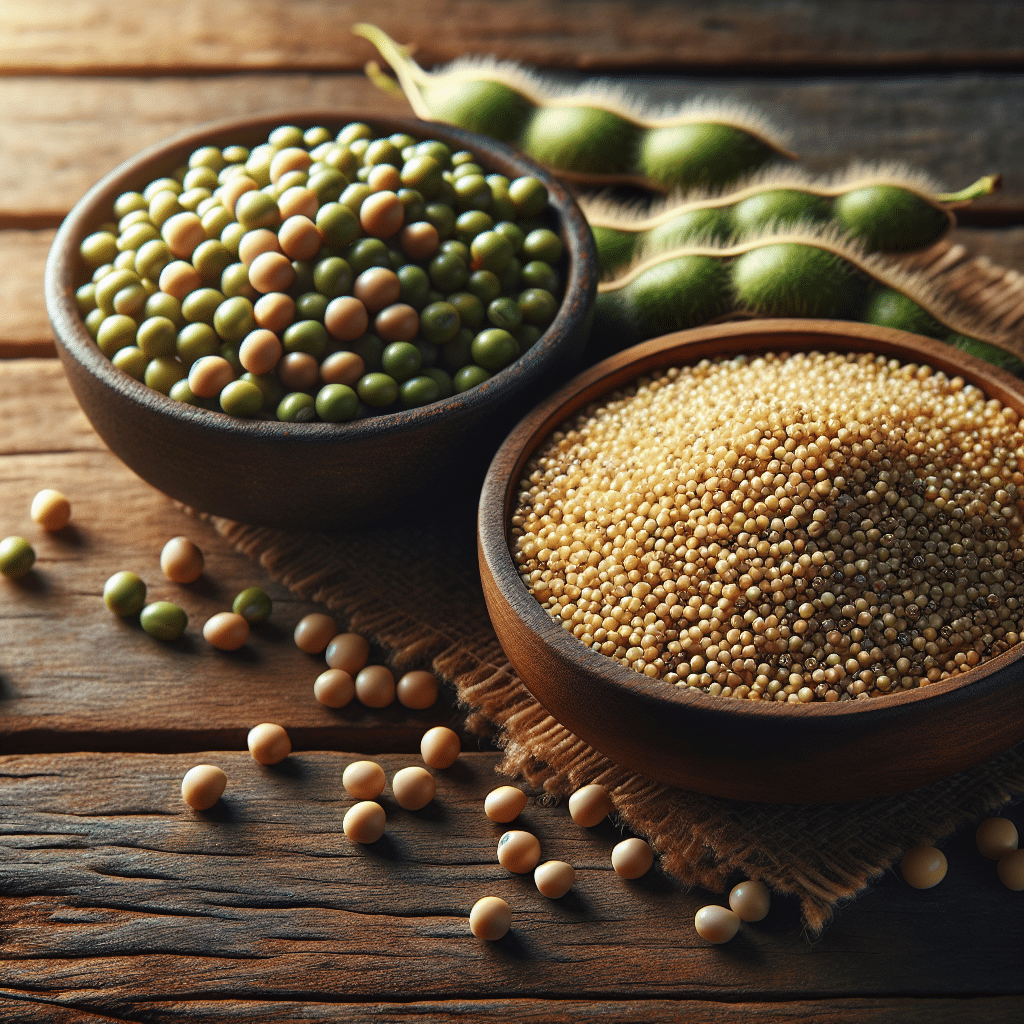
When it comes to protein, the common belief is that one must consume animal products to meet their dietary needs. However, this is a misconception, as several plant-based foods offer complete proteins, containing all nine essential amino acids that the human body cannot synthesize on its own. In this article, we will explore two such plant foods that are complete proteins: quinoa and soy. We’ll delve into their nutritional profiles, health benefits, and how they can be incorporated into a balanced diet.
Understanding Complete Proteins
Proteins are made up of amino acids, which are the building blocks of our muscles, enzymes, hormones, and other vital bodily components. There are twenty different amino acids, and nine of these are considered essential because our bodies cannot produce them. A complete protein is one that contains an adequate proportion of these nine essential amino acids.
Quinoa: The Ancient Superfood
Quinoa, often referred to as a “superfood,” is a seed that is prepared and consumed like a grain. It has been a staple in the diet of the Andean people for thousands of years and has gained immense popularity worldwide due to its impressive nutritional profile.
- Nutritional Value: Quinoa is high in protein, fiber, vitamins, and minerals. It contains all nine essential amino acids, making it a rare plant-based complete protein.
- Health Benefits: The high fiber content in quinoa can aid in digestion and help lower cholesterol levels. It is also rich in antioxidants and has been linked to a reduction in the risk of several diseases.
- Culinary Uses: Quinoa is incredibly versatile and can be used in salads, soups, as a side dish, or even as a breakfast cereal.
Case Study: Quinoa’s Impact on Health
Research has shown that incorporating quinoa into one’s diet can have significant health benefits. For example, a study published in the “Journal of Human Nutrition and Dietetics” found that quinoa consumption reduced blood sugar, insulin, and triglyceride levels, which are all risk factors for heart disease.
Soy: A Protein Powerhouse
Soybeans and soy products are among the most widely consumed foods in the world. They are a staple in many Asian cuisines and have been embraced by vegetarians and vegans for their high protein content.
- Nutritional Value: Soy is not only a complete protein but also a rich source of vitamins, minerals, and dietary fiber. It contains phytoestrogens, which have been linked to various health benefits.
- Health Benefits: Studies suggest that soy can help lower cholesterol levels, reduce the risk of heart disease, and may even have protective effects against certain types of cancer.
- Culinary Uses: Soy can be found in various forms, including tofu, tempeh, soy milk, and edamame. These can be used in a multitude of dishes, from stir-fries to smoothies.
Statistics on Soy and Health
According to the “American Journal of Clinical Nutrition,” consuming 25 grams of soy protein per day can reduce the risk of heart disease by lowering LDL cholesterol levels. Additionally, the FDA has recognized the benefits of soy in reducing heart disease risk.
Incorporating Complete Plant Proteins into Your Diet
Adding quinoa and soy to your diet is simple and beneficial. Here are some tips:
- Replace rice with quinoa for a protein-packed side dish.
- Use tofu or tempeh as a meat substitute in your favorite recipes.
- Snack on edamame or include it in salads for a nutritious boost.
- Choose soy milk as a dairy-free alternative in cereals and beverages.
Conclusion: Embracing Plant-Based Proteins
Quinoa and soy are excellent examples of plant foods that provide complete proteins. They offer a wealth of health benefits and are versatile ingredients in the kitchen. By incorporating these foods into your diet, you can enjoy the advantages of complete proteins without relying on animal products. Whether you are a vegetarian, vegan, or simply looking to diversify your protein sources, quinoa and soy are nutritious options to consider.
Discover ETprotein’s High-Quality Plant Proteins
If you’re looking for premium plant-based protein options, ETprotein offers a range of products that cater to various dietary needs. Their selection includes organic rice protein, pea protein, and other plant-derived proteins that are non-GMO and allergen-free. With a commitment to quality and purity, ETprotein is an excellent choice for those seeking to enhance their health with complete plant proteins.
About ETprotein:
ETprotein, a reputable protein and L-(+)-Ergothioneine (EGT) Chinese factory manufacturer and supplier, is renowned for producing, stocking, exporting, and delivering the highest quality organic bulk vegan proteins and L-(+)-Ergothioneine. They include Organic rice protein, clear rice protein, pea protein, clear pea protein, watermelon seed protein, pumpkin seed protein, sunflower seed protein, mung bean protein, peanut protein, and L-(+)-Ergothioneine EGT Pharmaceutical grade, L-(+)-Ergothioneine EGT food grade, L-(+)-Ergothioneine EGT cosmetic grade, L-(+)-Ergothioneine EGT reference grade and L-(+)-Ergothioneine EGT standard. Their offerings, characterized by a neutral taste, non-GMO, allergen-free attributes, with L-(+)-Ergothioneine purity over 98%, 99%, cater to a diverse range of industries. They serve nutraceutical, pharmaceutical, cosmeceutical, veterinary, as well as food and beverage finished product distributors, traders, and manufacturers across Europe, USA, Canada, Australia, Thailand, Japan, Korea, Brazil, and Chile, among others.
ETprotein specialization includes exporting and delivering tailor-made protein powder and finished nutritional supplements. Their extensive product range covers sectors like Food and Beverage, Sports Nutrition, Weight Management, Dietary Supplements, Health and Wellness Products, and Infant Formula, ensuring comprehensive solutions to meet all your protein needs.
As a trusted company by leading global food and beverage brands and Fortune 500 companies, ETprotein reinforces China’s reputation in the global arena. For more information or to sample their products, please contact them and email sales(at)ETprotein.com today.

